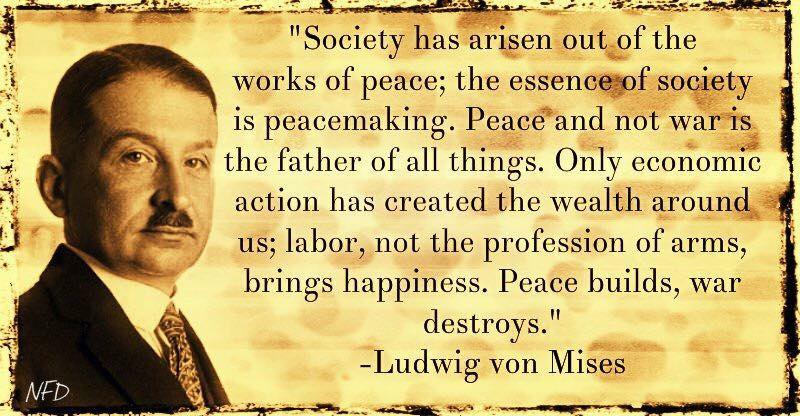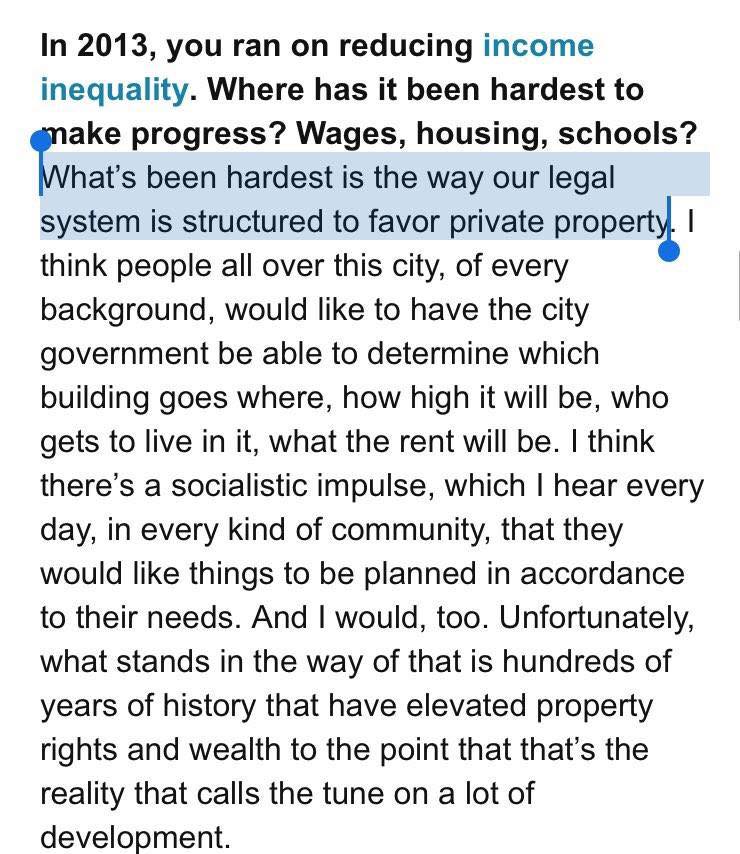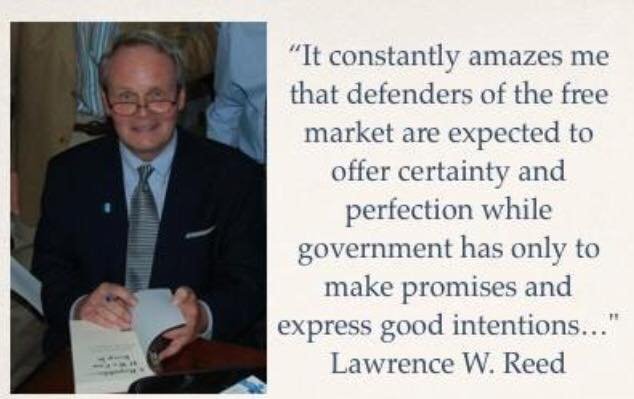LIBERTARIAN BOOK CLUB: Liberalism by Ludwig von Mises

We are a monthly book club for anyone who wants to learn more about Libertarianism. We will discuss each book's chapter/section in separate posts, so everyone will be able to read along at their own pace. We typically also focus on books which are available for free so that everyone can participate.
Join the Private Facebook Group and follow us on Twitter as we seek to learn more about Libertarianism.
Liberalism is Mises's classic statement in defense of a free society, one of the last statements of the old liberal school and a text from which we can continue to learn. It has been the conscience of a global movement for liberty for 80 years. This new edition, a gorgeous hardback from the Mises Institute, features a new foreword by Tom Woods. It can also be downloaded here.
Ch1, pgs. 18 -26
From Tom Wood's Forward:
“The liberal sets a very high threshold for the initiation of violence. Beyond the minimal taxation necessary to maintain legal and defense services—and some liberals shrink even from this— he denies to the state the power to initiate violence and seeks only peaceful remedies to perceived social ills. He opposes violence for the sake of redistributing wealth, of enriching influential pressure groups, or trying to improve man’s moral condition. Civilized people, says the liberal, interact with each other not according to the law of the jungle, but by means of reason and discussion.”
Intro. Mises:
“If it is maintained that the consequence of a liberal policy is or must be to favor the special interests of certain strata of society, this is still a question that allows of discussion. It is one of the tasks of the present work to show that such a reproach is in no way justified . . . In the customary rhetoric of the demagogues these facts are represented quite differently. To listen to them, one would think that all progress in the techniques of production redounds to the exclusive benefit of a favored few, while the masses sink ever more deeply into misery. However, it requires only a moment’s reflection to realize that the fruits of all technological and industrial innovations make for an improvement in the satisfaction of the wants of the great masses.”
While Mises endeavors to explain liberalism rationally, he says that you can't explain anti-liberalism that way because they are not rational. He calls it Fourierism - a kind of neurosis that is basically envy.
Ch 1 The section on property reminded me a lot of what Rothbard wrote in New Liberty. Not surprising since I am sure Rothbard cited Mises a lot.
On Freedom: “Muddleheaded babblers may therefore argue interminably over whether all men are destined for freedom and are as yet ready for it. They may go on contending that there are races and peoples for whom Nature has prescribed a life of servitude and that the master races have the duty of keeping the rest of mankind in bondage. The liberal will not oppose their arguments in any way because his reasoning in favor of freedom for all, without distinction, is of an entirely different kind. We liberals do not assert that God or Nature meant all men to be free, because we are not instructed in the designs of God and of Nature, and we avoid, on principle, drawing God and Nature into a dispute over mundane questions. What we maintain is only that a system based on freedom for all workers warrants the greatest productivity of human labor and is therefore in the interest of all the inhabitants of the earth.”
The section on Peace reminded me of . . .

I really liked section 2, talking about how by nature individuals will seek out beneficial relationships through mutual exchange. It's not that we believe that business is benevolent, but that like Adam Smith had said: it is not from their own generosity that the butcher and baker offer their service but of their own livelihood.
Former President Obama has repeatedly tried to infer cryptography is a threat to the /people/ if government doesn't have a skeleton key to everyone's digital house and digital papers by saying "Everyone is walking around with a swiss bank account in their pocket."
The first time I heard him say it out loud some years ago now, I thought to myself "that sounds expletive ideal!" .
The answer to the underlying and ongoing incessant plea by government to give them permission to do what they are already doing without permission, spying on the /people/, is of the form PRIVACY SHALL NOT BE INFRINGED
Given that the governments have proven themselves without honor and have violated any trust or hope thereof to defend from plunder in the act of plundering themselves, privacy going forward will be kept by intellectual strength. This is not a request, this is an action a person takes, or doesn't take: responsibility for their own digital information security.
If you didn't read the chapter you probably won't get how that all relates together in terms of the shenanigans they've been up to since his observations were originally written. Trusting the other end to hold all the keys and the data has proven unwise, hasn't it?
Ch 1, pgs. 27-41
I have some qualms about how Mises frames the discussion on equality. He finds fault with nineteenth century liberals (here I think we can substitute Thomas Jefferson though Mises noticeably does not call him out by name) because they argued for the equality of all men on the basis of natural rights theory. Mises argues that is preposterous because all you have to do is look at people to see they are not equal. But when Jefferson said all men are created equal he certainly did not mean that all men are identical.
Since he rejects equality as a reason for giving equal treatment under the law, he therefore resorts to making utilitarian arguments. He basically says that elites best not deprive the poor and working class of equal treatment because they are outnumbered and will meet resistance - usually bloody. However, you will recall that in New Liberty, Rothbard will argue that it is a mistake to make utilitarian arguments and that we must always argue from first principles.
In section five Mises argues that the luxuries of today inevitably become the necessities of tomorrow. I am glad to know that in the future we will all fly first class, have yachts, chauffeur driven limousines, and luxury boxes at the ballpark.
Section Six:
“In requiring of the individual that he should take society into consideration in all his actions, that he should forgo an action that, while advantageous to him, would be detrimental to social life, society does not demand that he sacrifice himself to the interests of others. For the sacrifice that it imposes is only a provisional one: the renunciation of an immediate and relatively minor advantage in “exchange for a much greater ultimate benefit. The continued existence of society as the association of persons working in cooperation and sharing a common way of life is in the interest of every individual.”
In Section Seven, everyone should see the problem with this:
“There is, to be sure, a sect that believes that one could quite safely dispense with every form of compulsion and base society entirely on the voluntary observance of the moral code. The anarchists consider state, law, and government as superfluous institutions in a social order that would really serve the good of all, and not just the special interests of a privileged few. Only because the present social order is based on private ownership of the means of production is it necessary to resort to compulsion and coercion in its defense. If private property were abolished, then everyone, without exception, would spontaneously observe the rules demanded by social cooperation.”
Mises here to me seems to be arguing that anarchism is incompatible with private property. Of course, most of us now understand this to be incorrect and the present-day Mises Institute could be called the Anarcho-Capitalist Institute.
Mises writes: “Liberalism is not anarchism, nor has it anything whatsoever to do with anarchism.”
He may be right about that, which is why Rothbard used the term libertarianism to describe anarcho-capitalism and deliberately distinguished it from liberalism which he viewed as a sort of proto-libertarianism.
Mises goes on this same line to a sickening degree in Section Eight. When reading this I thought of this meme, but in place of "proud conservative" I guess you could photoshop Mises' face.

Ch 1, pgs. 42-59
Mises confuses me again in Section Nine:
“The champions of democracy in the eighteenth century argued that only monarchs and their ministers are morally depraved, injudicious, and evil. The people, however, are altogether good, pure, and noble, and have, besides, the intellectual gifts needed in order always to know and to do what is right. This is, of course, all nonsense, no less so than the flattery of the courtiers who ascribed all good and noble qualities to their princes.”
That I agree with completely. However, he closes that same section:
“Only a group that can count on the consent of the governed can establish a lasting regime."
So he begins by criticizing democracy and closes by praising it. In between he seems to be making another utilitarian argument in favor of democracy.
Section 10 I like. Basically he argues that fascism at the time of his writing was popular because it was a response to the evils of Bolshevism.
“Many people approve of the methods of Fascism, even though its economic program is altogether antiliberal and its policy completely interventionist, because it is far from practicing the senseless and unrestrained destructionism that has stamped the Communists as the arch-enemies of civilization”
He was very prescient here:
“But when the fresh impression of the crimes of the Bolsheviks has paled, the socialist program will once again exercise its power of attraction on the masses.”
Section 11: Found this depressing considering it was written several decades ago:
“Other countries do not go so far, but nearly everywhere some restrictions are imposed on the sale of opium, cocaine, and similar narcotics."
Mises argues that once you concede government the power to prohibit certain substances you have lost the argument that they should not be able to prohibit certain reading material.
Section 12: He makes another utilitarian argument. The state should be tolerant of religious beliefs, not because every individual has freedom of conscience, but says Mises, because intolerance will lead to social unrest by persecuted religious.
We of course today would prefer no state around to be tolerant or intolerant of anything.
Section 13 Mises wrongly suggests that suppression of conduct detrimental to the social order requires a state. As we saw from Rothbard though that is not the case at all.
Ch 2, pgs. 60-84
In The Organization of the Economy, Mises points out the difference between redistributing capital among the working class and the communal ownership of property, but of course rejects both.
In "The Impracticality of Socialism" he says that while the common criticism that “most men will not exhibit the same zeal in the performance of the duties and tasks assigned to them that they bring to their daily work in a social order based on private property" is correct, it does not get at the heart of the matter: “What renders socialism impracticable is precisely the fact that calculation of this kind is impossible in a socialist society.”
In Sections 2 and 3 Mises says that since the world is not a paradise, people like to direct their unhappiness at the institution of private property and that governments by their very nature always attack private property. Below is a perfect example of that from a recent interview with New York City Mayor DeBlasio.
Mises says that while many people today understand that private property can not be dispensed with completely, they think government intervention is necessary to even the playing field. He explains though how every single government intervention in the voluntary exchange of goods and services can only make the market less efficient i.e. Back to Hazlitt's consequences seen and unseen.

Ch 2, pgs. 85-94
In section seven Mises argues that we have nothing to fear from natural monopolies. Reminded me of this Tom Woods episode
I would summarize section six as that capitalism is not perfect, just better than any other economic system conceivable. Reminded me of this: 
Ch 3, pgs. 105-117
Section 3.1 is brief, but I think complex.
Mises argued that for classical liberals, there is no divide between domestic and foreign policy: The same principles that apply to one apply to the other. And I would summarize that principle as non-interventionism: no intervention by government in the domestic economy and no intervention by government in the affairs of foreign governments - i.e. Peace, commerce and honest friendship with all nations, entangling alliances with none.
So far, so good, but
Mises goes on to extol the virtues of cosmopolitanism vis-a-vis nationalism. Also fine. But he then argued a that national unity is itself a product of liberalism. THAT seems to conflict a bit with the point he just made, and quite a bit with the book we read by Tom DiLorenzo where he made the case that DISUNITY within a nation is a force for good when it comes to libertarianism and advocated secession and nullification as tools to advance liberty.
Ch 3, pgs. 118-141
Section 3.4 Mises argues that ethic conflicts within heterogenous nations can only be avoided when said nation completely adopts a liberal program. As per Rothbard though:

Ch. 4, pgs. 155-169
We often hear complaints that libertarianism does not advance due to some failure or another in tactics or strategy on the part of libertarians. In Section 4.1 Mises dismisses that concern saying that liars and tricksters need tactics and strategy but that if people can't see the truth for themselves there is no hope for them.
Mises goes even further:
“Most people do not have even the intellectual endowments required to think through the—after all very complicated—problems of social cooperation, and they certainly do not have the will power necessary to make those provisional sacrifices that all social action demands.”
Well that is certainly downer, leaving all political activity completely useless. (He makes that explicit in the next section). I am left wondering what is the point of his even writing and publishing books if he believes that?

Ch. 4, pgs. 170-187
Section 4.3
"There are, therefore, only two parties: the party in power and the one that wants to be in power . . . As their demands are, in principle, limitless, it is impossible for any one of these parties ever to achieve all the ends it envisages . . . Every party seeks, nevertheless, to attain to such influence as will permit it to satisfy its desires as far as possible, while also taking care always to be able to justify to its electors why all their wishes could not be fulfilled."
Certainly seems apropos today regarding the GOP's failure to repeal ACA, defund Planned Parenthood etc.
Section 4.4.
"Society cannot, in the long run, exist if it is divided into sharply defined groups, each intent on wresting special privileges for its own members”
To me that is almost like saying "Society can not in the long run exist. Period." Mises I think unwittingly makes the case for radical individualism. Or It's saying politics will cause society to cease, if we keep it up.
Section 4.5 he returns to the idea that liberals must fight force with ideas not counter-force.
Section 4.6. He returns to the idea that critics of liberalism will claim that liberalism is the special interest of capitalists, but that that is false because capitalism ultimately benefits not just one class of people, but everyone. In a liberal system property rights belong to all, not just to capitalists.
Ch 5
In Chapter Five, Mises argues that the enemies of capitalism have lost the debate that alternatives to capitalism can lead to greater material wealth, so they have moved the goalpost and now claim that material wealth is a societal ill. Mises replies though that a return to primitive asceticism would result in the deaths of billions of people.
"Liberalism is no world view because it does not try to explain the cosmos and because it says nothing and does not seek to say anything about the meaning and purpose of human existence . . . It seeks to give men only one thing, the peaceful, undisturbed development of material well-being for all."
Summary
As I mentioned a few times in earlier chapters, my beef with Mises is that he is a minarchist. That is a step backward after having read Rothbard. Rothbard and Hoppe take the foundation established by Mises to its next logical progression. I know it is not really possible, but it would be great if we could read books in historical order of their logical progression toward anarchy-capitalism. If you want to read the precursors of Mises, the first appendix of this book is a good place to start.
Join the Private Facebook Group and follow us on Twitter as we seek to learn more about Libertarianism.


libertyLOL's "Divide and Rule"
If you enjoyed, Please Upvote, Follow and Resteem!
Follow libertyLOL on your favorite sites:
Steemit blog
Facebook
Twitter
Reddit
Youtube
Tumblr
Instagram
Pintrest
Countable: Government Made Simple
Patreon
Gab.ai
libertyLOL's Liberty Blog RSS Feed
We also run a couple twitterbots which provide great quotes and book suggestions:
Murray Rothbard Suggests
Tom Woods Suggests
Jason Stapleton Suggests
Progressive Contradictions
This was the first book I read written by Von Mises, when I did it, I did not even know who this man was, then I am very clear who he was, he was the one who finished me becoming a liberal, although I was already one, but without knowing it. Thanks to Von Mises, I truly understood how the economy works in depth. His description of praxeology, and how he delves into it, is incredible. He explains perfectly the impossibility of economic calculation in socialism, among many other things. A very good book that is worth reading. I lent that book to two socialists that I know and with whom I always argue, one did not read it, and another barely started it. Apparently the socialists do not like to read, even less if it is about economy.
lol, YES! And this is why I follow you and value your insight!
Keep urging them to 'start' reading!
Really need to read this, thanks for sharing. I find it shocking I only learned about the Austrian school this year😌
Beep!Beep! @shadow3scalpel & listkeeper @chairborne have your six new veterans, retirees and military members on STEEM. We’ll be patrolling by to upvote your posts (because you are on the list) and we'll answer any questions you leave us. Comment by @shadowspub. This is a opt-in bot.
Congratulations! This post has been upvoted from the communal account, @minnowsupport, by libertyLOL from the Minnow Support Project. It's a witness project run by aggroed, ausbitbank, teamsteem, theprophet0, someguy123, neoxian, followbtcnews/crimsonclad, and netuoso. The goal is to help Steemit grow by supporting Minnows and creating a social network. Please find us in the Peace, Abundance, and Liberty Network (PALnet) Discord Channel. It's a completely public and open space to all members of the Steemit community who voluntarily choose to be there.
If you would like to delegate to the Minnow Support Project you can do so by clicking on the following links: 50SP, 100SP, 250SP, 500SP, 1000SP, 5000SP. Be sure to leave at least 50SP undelegated on your account.